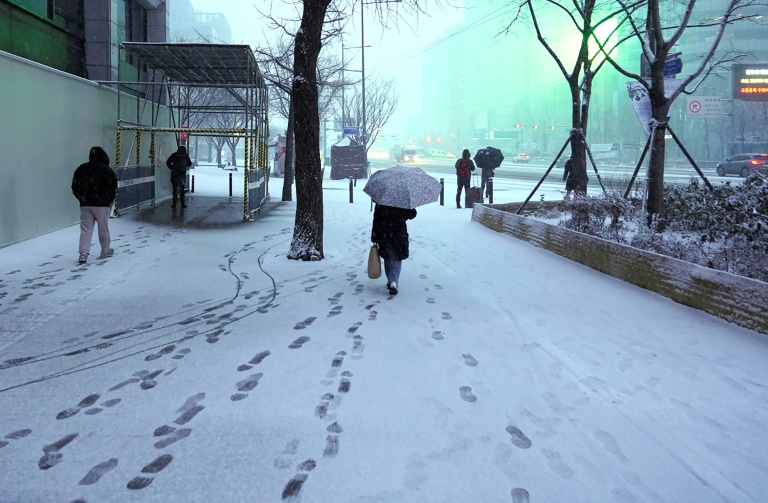By Jarrell Dillard, Prashant Gopal and Maria Clara Cobo | Bloomberg
Before Donald Trump’s election, Redfin Corp. projected mortgage rates would average 6.1% next year. But three days after the election, they revised their estimate upward to 6.8% – basically unchanged from today’s high levels.
“The difference is Trump,” said Daryl Fairweather, chief economist at Redfin. “The market seems to be pricing in that he’ll move forward with at least some of the tariffs, but it’s really hard to know what Trump is going to do.”
It’s another hit for the housing market, which has been dealing with a rise in borrowing costs that’s pushed at least one measure of mortgage rates above 7%. Economists expecting higher-for-longer borrowing costs shows just how tough the market is likely to be for homebuyers trying to find affordable options.
“There was a view that rates would gradually fall, but that no longer seems to be the case,” said Thomas Ryan, North America economist at Capital Economics. “As a result, the housing market is going to stay frozen — as it is — for longer than we and other economists had expected.”
While the stock market rallied the day after Trump’s victory, the bond market has reacted with more trepidation given how tariffs and other policies might impact inflation. After the election, Barclays Plc economists raised their inflation projections for the next two years and lowered their outlook for economic growth, due to tariffs and potential immigration restrictions.
Trump’s proposal for an up to 20% tariff on all imports, and an even higher 60% tariff on Chinese goods, is one of the major causes of uncertainty. Economists have said this could lead to inflation as companies would likely pass on those cost increases to consumers. If he also imposes tax cuts, that could lower fiscal revenue and drive up the US deficit, pushing long-term rates even higher.
Some economists have also warned that Trump’s plan to deport millions of undocumented immigrants could further exacerbate the nation’s housing shortage. If Trump’s policies lead to an even smaller labor force for the construction industry, it would make it difficult to build new homes and make costs even more expensive.
“We need labor,” said Nadia Evangelou, senior economist at the National Association of Realtors. “Sometimes homebuilders are not able to deliver affordable homes, or the price point that people can afford to buy. And the reason is because of the labor shortage.”
Trump’s impacts on the economy will likely influence how the Federal Reserve proceeds. And while the Fed’s decisions on short-term interest rates do not directly set mortgage rates, monetary policy does have some influence. Mortgage rates closely follow yields on 10-year Treasuries, and are affected by market expectations for inflation and economic growth.
Capital Economics expects higher rates to be another “setback” for buyers and cause a home-sale recovery to be even shallower than expected. Mortgage rates will likely stay high around 7% in 2024 and drop only a quarter point by the end of 2025, according to Capital Economics’ Ryan.
“There’s a general consensus that the net effect of Trump’s policies will be inflationary,” Ryan said. “That’s what’s driving changes in the bond market at the moment.”
Other economists have also dialed back their mortgage-rate expectations. Mark Zandi, chief economist at Moody’s Analytics, predicts 30-year fixed mortgage rates will now remain around 7%.
“I don’t think I’d count on mortgage rates coming down anytime until next fall, later next year,” Zandi said. “And even then, I’m not sure. It really depends on what his policies are, how aggressively he pursues them.”
Forging aAhead
For buyers, the picture remains a little uncertain. High borrowing costs have weighed on shoppers, fueling a drop in contracts to buy previously owned homes in October, according to Redfin.
While prices held up in October, homes stayed a median of 41 days on the market, about a week longer than a year ago, according to Redfin. If higher borrowing costs slow the market even more, that could help spur more deals for buyers.
For now, election uncertainty has cleared, giving some consumers more confidence to forge ahead. Erica Diaz, an agent with Homevest in Florida, said her business has seen a significant increase in both potential buyers and sellers since the election.
Malvin Le, a real estate agent based in Orange County, California, said his phone lit up immediately after the election with a few buyers ready to go shopping again.
“The day after the election, I got three or four calls from buyers who wanted to see a house that weekend,” Le said. “There are still buyers waiting to buy, they’re just waiting for a good deal.”






